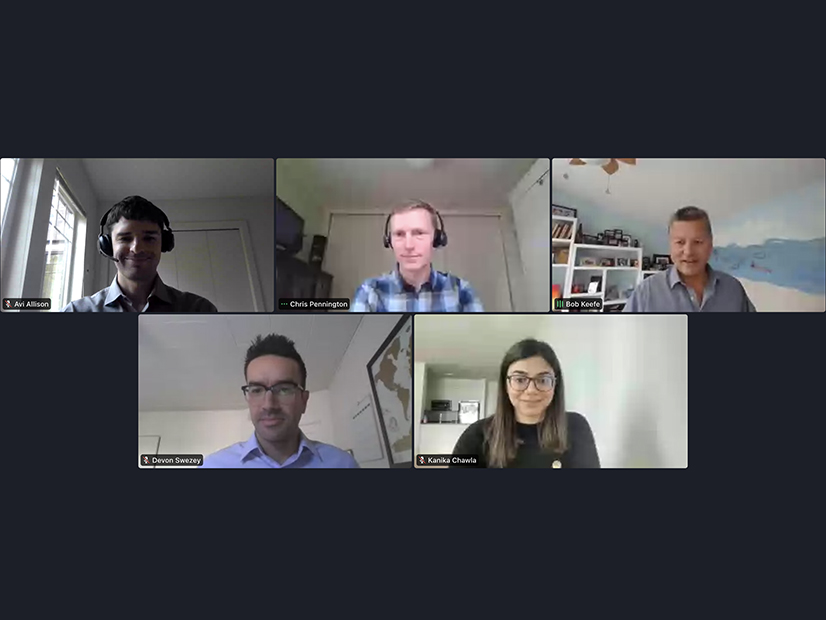
U.S. companies with global operations are buying more renewable energy and partnering with international organizations to bring policymakers, regulators and supply chains into the commitment to fully decarbonize their activities by 2030.
Elements of a carbon-free energy system include local procurement, new installations and the creation of supply chains in different parts of the world, but it also includes creating demand, Kanika Chawla, program manager at Sustainable Energy for All, said Monday.
Chawla made her remarks on the first day of the week-long Verge 21 conference hosted by GreenBiz.
Policy and regulation should create a level of certainty for new technologies and act as “a nudge” for both markets and governments, Chawla said.
Even before the world woke up to the existential threat from climate change, “the General Assembly agreed that there needed to be a dialogue on energy … which actually ended up happening in 2021 because of COVID,” Chawla said. (See UN Hosts Energy Dialogue During General Assembly.)
She highlighted the 24/7 Carbon-free Energy (CFE) compact to match every hour of electricity consumption with carbon-free energy resources. The compact, Chawla said, is “a way for government, the private sector, financial institutions, procurers, energy companies as well as distribution companies — really the whole ecosystem — to come together and make a commitment that by 2030 we’re going to have a decarbonization of the electricity system.”
CFE signatories Iron Mountain, Microsoft and Google are demonstrating how to make 24/7 clean energy work, Chawla said. The compact has 20 other signatories; Chawla said Sustainable Energy for All will announce an additional 20 at the 2021 United Nations Climate Change Conference (COP26).
COP26 is scheduled to be held in Glasgow, Scotland, between Oct. 31 and Nov. 12.
Small Steps at First
Google is advocating for effective public policies to drive decarbonization of electricity grids across the world, said Devon Swezey, the company’s global energy markets and policy lead.
“We think that policy is really essential to enabling 24/7 carbon-free energy for everyone, and that’s why recently we partnered with Sustainable Energy for All and other partners, including Iron Mountain, to launch the 24/7 CFE compact,” Swezey said.
Google has been carbon neutral since 2007, initially through the purchase of carbon offsets, Swezey said. In 2010, it was one of the first companies to purchase renewable energy directly through a power purchase agreement, and in 2017, it met an earlier goal to match 100% of its global annual electricity consumption with renewable energy purchases, he said.
“First, we are innovating in the way we purchase clean energy, and this includes signing a first-of-its-kind agreement with AES Corp.’s (NYSE: AES) renewable energy development business in PJM, which will combine a portfolio of different clean energy technologies to collectively guarantee that by 2024 we will be operating on 90% hourly carbon-free energy around the clock,” Swezey said.
Second, Google is working to accelerate technology innovation, which includes developing a next-generation geothermal power project with clean energy startup Furbo Energy. The project will deliver around-the-clock clean electricity to the power grid that serves data centers in Nevada.
“We’re also developing a carbon-aware computing platform to make our own electricity demand more flexible and better align it to times of day or places where the grid is cleanest, and we think the planned flexibility can go a long way in helping us achieve the goal,” Swezey said.
People know the environmental and economic costs of climate change, but the business perspective may differ, said panel moderator Bob Keefe, executive director of environmental engineering cooperative E2.
“Tell us why it is important to your companies to do this, either from an efficiency standpoint or bottom-line standpoint,” Keefe said. “How do you bring suppliers along, and what should they be pushing for?”
An important area is the development of data that can add a very granular level to identifying where investments are going to have the greatest grid-scale, society-wide decarbonization impact, said Avi Allison, program manager for energy and sustainability at Microsoft.
“I think 24/7 commitments can be one step in the journey towards decarbonization,” Allison said. “I don’t view them as a sufficient step or even a strictly necessary step, but they are helpful for driving clear procurement for now, and I think we need better tools to help us better target those investments.”
“To kickstart a virtuous cycle,” the three priorities are tracking clean energy production on an hourly basis; identifying the grid-specific emission rate at the time when the production is happening; and developing scalable products that can help others to achieve similar commitments and drive toward grid-scale decarbonization, Allison said.
Business services firm Iron Mountain runs 18 large data centers around the world and sees itself as a critical piece of its clients’ energy supply chain, said Chris Pennington, the company’s director of energy and sustainability.
“We use that scale that we have as a large energy buyer to help make as much of a positive impact from an environmental standpoint as we can, and then pass the benefits of that through to our clients who are using the energy inside our facilities,” Pennington said. “That’s … a bit of the reason why we adopted this 24/7 carbon-free energy commitment, because we think that this is the energy that our clients will be wanting to buy on their own going forward.”
